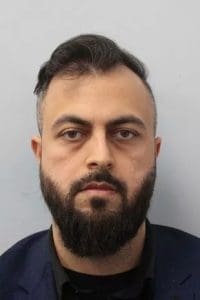The UK’s National Crime Agency (NCA) has spearheaded a global crackdown on one of the most expansive and sophisticated money laundering operations ever seen, implicating a network led by Russian financier Ekaterina Zhdanova. The operation allegedly exchanged cash from British drug gangs for cryptocurrency sourced from Russian hackers. This multi-billion-pound syndicate, which spread across the UK and beyond, has involved a complex web of criminal activities including drug trafficking, cybercrime, and espionage.
According to the NCA, the laundering operation, involving two major Russian-speaking groups — Zhdanova’s “Smart” and George Rossi’s “TGR” — exchanged illicit cash from street-level UK drug deals for crypto assets that were earned through ransomware attacks by Russian hackers. These cryptocurrencies were used to fund purchases of more drugs from South American cartels and weapons, exacerbating criminal activity in the UK.
The operation also funneled illicit funds through various businesses such as laundromats and construction firms, facilitating money transfers to shell companies, often in Dubai. This money-laundering scheme further enabled Russian oligarchs to bypass financial sanctions and acquire assets like UK property. The network was also linked to funding espionage operations for the Russian state.
The NCA’s Operation Destabilise, which uncovered the full scale of this operation, led to the arrest of 84 individuals, the majority of whom were in the UK. More than £20 million in cash and cryptocurrency was seized. The US Office of Foreign Assets Control (OFAC) sanctioned five individuals and four associated companies linked to these criminal groups. Zhdanova, who is now in custody in France, and Rossi, whose whereabouts remain unknown, are key figures in this vast operation.
NCA Director-General Rob Jones emphasized that Operation Destabilise was the largest money laundering operation in the last decade. He described the operation as connecting Russian elites, cybercriminals, and UK drug gangs on an unprecedented scale. This “laundromat” system allowed criminals to rapidly convert their profits using crypto, making it harder for law enforcement to track illicit funds.
The system grew increasingly popular during the pandemic, when criminals turned to cryptocurrency after traditional money-laundering routes were hindered by lockdown restrictions. It also helped criminals circumvent sanctions following Russia’s invasion of Ukraine. The cryptocurrency traded was linked to ransomware extortions — particularly those carried out by the Ryuk group. Zhdanova allegedly laundered over $2.3 million in ransom payments made by victims of this cyber-extortion group.
The NCA traced several cash courier networks, some of which operated across the UK, collecting cash from drug-dealing groups in cities like London, Birmingham, and Glasgow. In one instance, a London-based courier, directed by Zhdanova and her associate Nikita Krasnov, laundered more than £15 million in criminal cash.
Zhdanova is also linked to transnational crime groups such as the Kinahans, an Irish criminal family that trafficked drugs and weapons into the UK. The laundering service provided by Smart and TGR charged a commission, but as the operation gained momentum, the syndicate found it increasingly difficult to operate in London, raising their fees.
In addition to money laundering, evidence has emerged suggesting that the operation funded Russian espionage activities, particularly between late 2022 and mid-2023. There are reports that Russia’s sanctioned state-run TV network RT used the laundering scheme, and that funds were transferred through the system to support Russian media activities in the UK.
The US sanctions, announced alongside the NCA’s ongoing efforts, target key figures in the Smart and TGR networks, including Zhdanova, Rossi, and other associates. The NCA’s actions have significantly disrupted these illegal financial flows, with continued investigations expected to uncover even more international connections.
The global effort led by the NCA and Border Force highlights the UK’s central role in both facilitating and fighting illicit finance, particularly in cryptocurrency, which the NCA estimates is involved in moving about £5 billion of the £100 billion laundered through the country each year. This landmark operation is a crucial step toward dismantling global money-laundering networks that fuel serious crimes, from cyber-attacks to the illegal trafficking of drugs and weapons.


